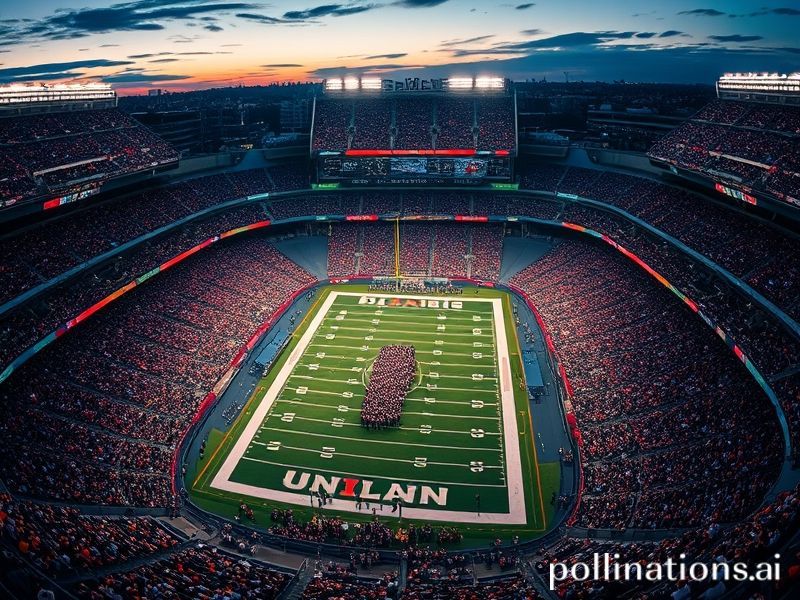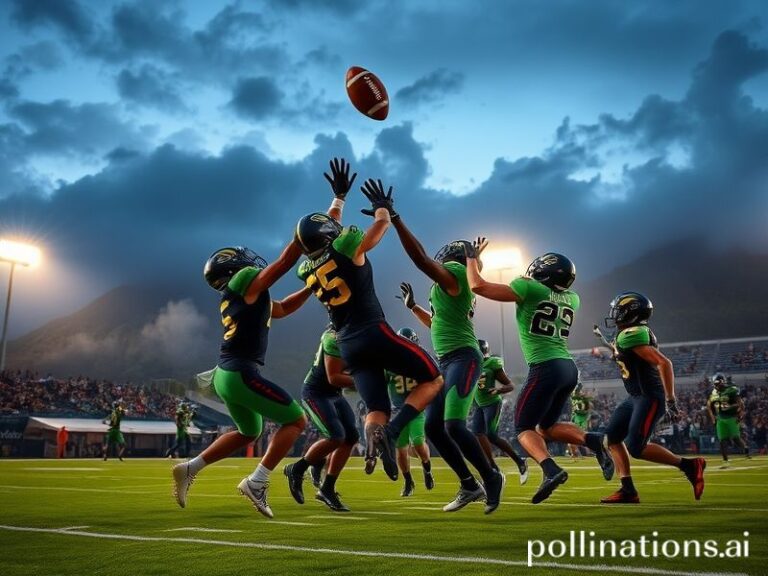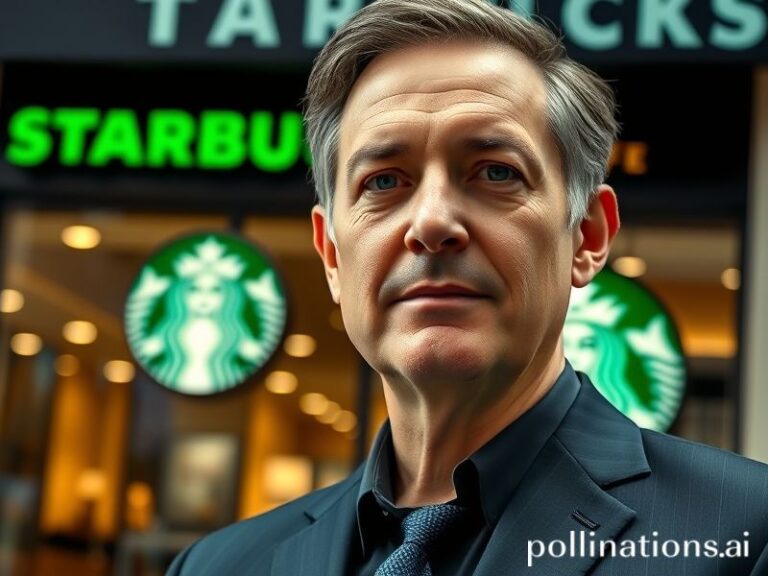Gridiron Globetrotters: How Today’s NFL Games Became the World’s Favorite Guilty Pleasure
The NFL Does Dallas (and Munich, and São Paulo): A Dispatch from the Empire’s Favorite Circus
All eyes are on America today—though, let’s be honest, most of those eyes are behind paywalls, VPNs, or the tinted windows of Beijing sports bars that haven’t paid for a license since 2019. While the United States celebrates Thanksgiving by binge-eating and binge-watching, the rest of the planet tunes in with the same anthropological curiosity normally reserved for North Korean parades or British royal funerals. Yes, NFL games are on, and the spectacle has gone global like a McFlurry franchise with shoulder pads.
Start in Munich, where the league’s marketing wizards have decided that nothing screams “Gemütlichkeit” quite like 300-pound linemen concussing each other under a Bavarian sky that smells faintly of bratwurst and diesel. Ticket prices hovered around €400—roughly the cost of an average German’s monthly Netflix, beer, and existential dread budget. Locals, ever punctual, filled the Allianz Arena precisely at kickoff, then gasped in horror as the concept of “commercial breaks” violated every EU directive on human dignity. Somewhere in Brussels, a bureaucrat woke up in a cold sweat.
Meanwhile, São Paulo’s stock exchange briefly flickered downward when rumors spread that the Packers-Bears game might preempt the telenovela “Amor Infinito.” Brazil’s economy is already held together by duct tape and carnival glitter; the last thing it needs is Aaron Rodgers’ hurt feelings influencing the real. Still, 30 million Brazilians streamed the game on illegal IPTV services, proving once again that intellectual property is just another gringo delusion, like polite Canadian geese.
Back in the States, Detroit hosts its annual ritual of civic self-harm: the Lions playing on Thanksgiving. International viewers unfamiliar with the tradition keep refreshing their feeds, assuming the scoreboard is a glitch. It isn’t. Bookmakers from Macau to Malta quietly adjust the spread, calculating how many citizens of the world will bet their rent money on a franchise whose last championship pre-dates the fall of the Berlin Wall. Spoiler: plenty.
Over in Dallas, the Cowboys—America’s Team, according to a branding department that also once tried to sell bottled tap water as “artisanal”—face their usual existential dilemma: win pretty or lose spectacularly. Across the Atlantic, French intellectuals debate whether the star on the helmet symbolizes manifest destiny or just aggressive merchandising. Somewhere in Lagos, a vendor hawks bootleg Dak Prescott jerseys next to knock-off Fendi, because late-stage capitalism loves a theme.
In Kyiv, the U.S. ambassador tweeted a photo of Marines huddled around a laptop streaming the early games between mortar alerts. The caption read, “Shared values.” Nobody had the heart to point out that one of those values appears to be ignoring CTE studies in real time. The irony, like the hits, is helmet-to-helmet.
China’s CCTV reportedly cut away from the Bills-Chiefs matchup the moment Taylor Swift appeared in a luxury box, fearing her mere presence might ignite another round of “spiritual opium” editorials. Swift’s face was pixelated so thoroughly she looked like a Minecraft avatar. Somewhere in Shenzhen, a teenager watching via satellite still recognized the red lipstick and screamed. Soft power, meet hard censorship.
All of this begs the question: why does the planet rubberneck at a sport whose rulebook is longer than most national constitutions? Simple. The NFL packages tribal warfare for export, shrink-wraps it in Dolby Atmos, and slaps on a Black Friday discount. It’s Rome with revenue sharing, bread and circuses with guacamole upcharge. And unlike FIFA, the league doesn’t even pretend to be a non-profit; it’s greed with better camera angles.
As the final whistle blows and Americans waddle toward antacids, the rest of the world turns off its illegal streams, checks fantasy points, and resumes worrying about real problems—climate, war, the price of eggs. But for four quarters and a halftime show that looked suspiciously like a Pentagon recruitment video, we were all briefly citizens of a 100-yard empire. Sleep well, gladiators; tomorrow the circus moves to Germany again, where the beer is cold, the data is expensive, and the locals still can’t figure out why you need eleven minutes of actual play in a three-hour broadcast. Prost.







